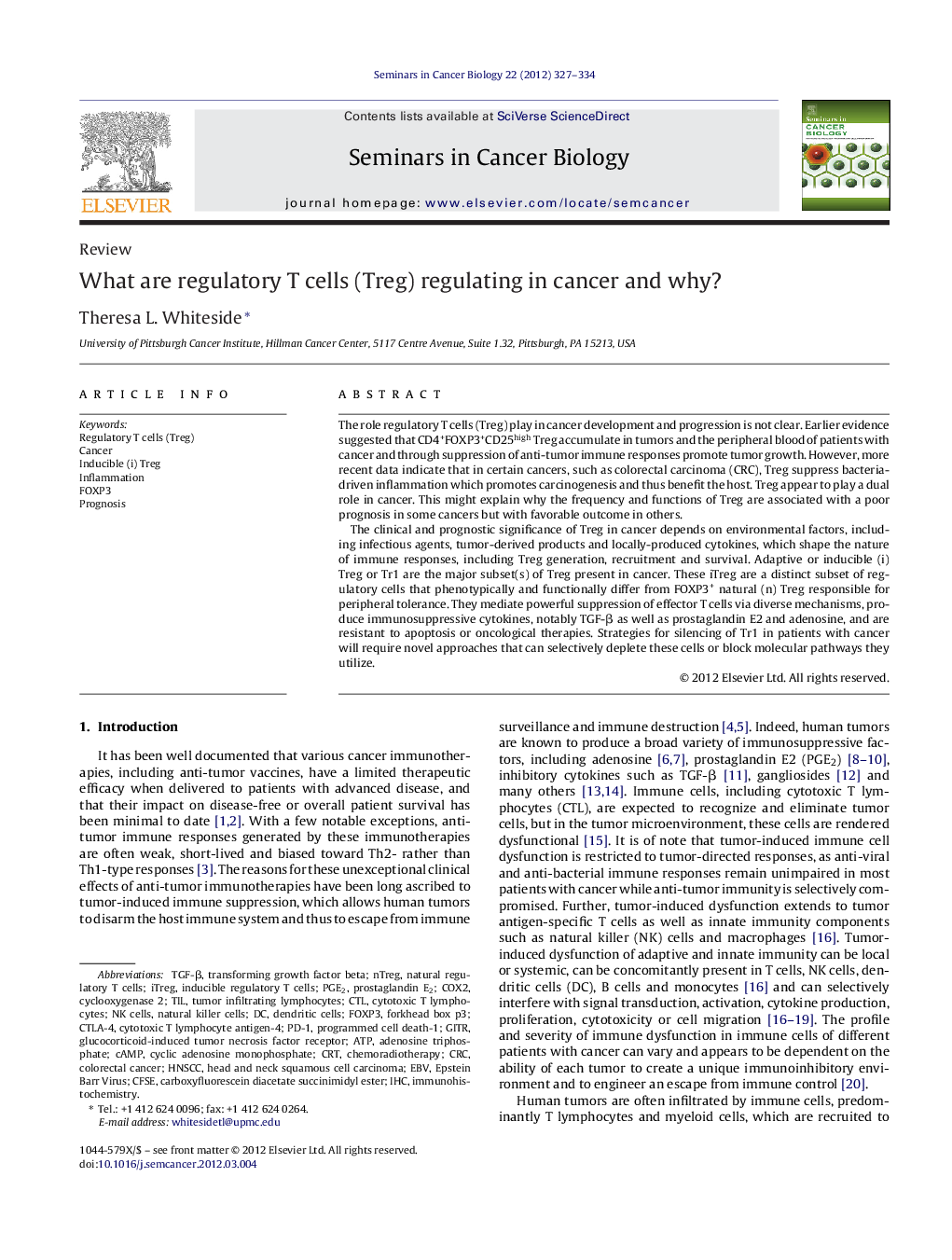| Article ID | Journal | Published Year | Pages | File Type |
|---|---|---|---|---|
| 10845659 | Seminars in Cancer Biology | 2012 | 8 Pages |
Abstract
The clinical and prognostic significance of Treg in cancer depends on environmental factors, including infectious agents, tumor-derived products and locally-produced cytokines, which shape the nature of immune responses, including Treg generation, recruitment and survival. Adaptive or inducible (i) Treg or Tr1 are the major subset(s) of Treg present in cancer. These iTreg are a distinct subset of regulatory cells that phenotypically and functionally differ from FOXP3+ natural (n) Treg responsible for peripheral tolerance. They mediate powerful suppression of effector T cells via diverse mechanisms, produce immunosuppressive cytokines, notably TGF-β as well as prostaglandin E2 and adenosine, and are resistant to apoptosis or oncological therapies. Strategies for silencing of Tr1 in patients with cancer will require novel approaches that can selectively deplete these cells or block molecular pathways they utilize.
Keywords
PD-1Regulatory T cells (Treg)PGE2nTregCrtcox2Natural regulatory T cellsCTLHNSCCGITRFOXP3iTregTGF-βCTLA-4CFSEcAMPAdenosine TriphosphateATPCyclic adenosine monophosphatecytotoxic T lymphocyte antigen-4inflammationEBVIHCImmunohistochemistryTILTransforming Growth Factor BetaTumor infiltrating lymphocytesforkhead box P3CancerColorectal cancerDendritic cellsNK cellsNatural killer cellscyclooxygenase 2ChemoradiotherapyCytotoxic T lymphocytesProgrammed cell death-1Epstein barr virusProstaglandin E2prognosisHead and neck squamous cell carcinomaCRCcarboxyfluorescein diacetate succinimidyl esterGlucocorticoid-induced tumor necrosis factor receptor
Related Topics
Life Sciences
Biochemistry, Genetics and Molecular Biology
Biochemistry
Authors
Theresa L. Whiteside,
